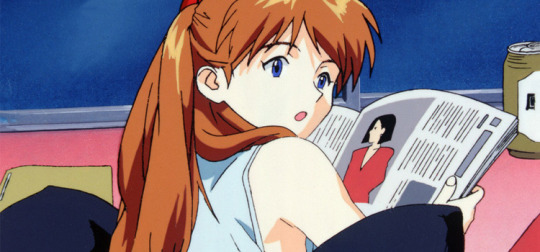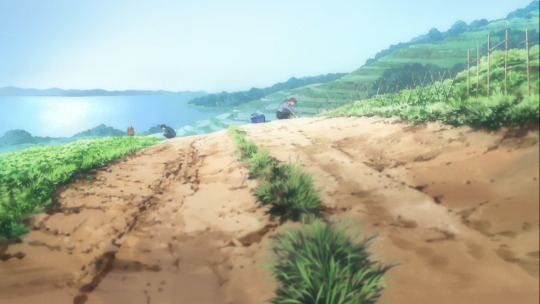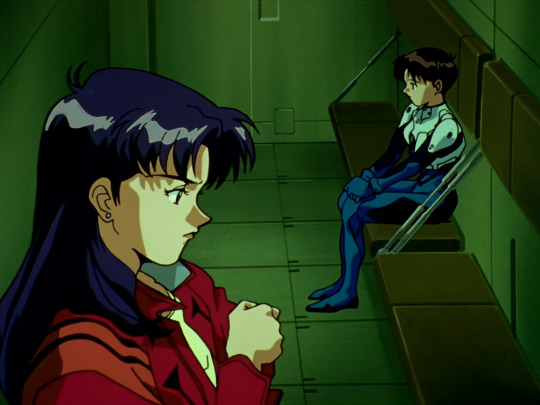Aspiring author. Unfortunate conlanger. Bumbling game designer. Failed academic. Also art?? Forgive my attempts at human contact, I am merely a mote in the void.Substack: substack.com/@willknightauthorBluesky: @willknightauthor.bsky.social
Don't wanna be here? Send us removal request.
Note
You shouldn't have to be a professional game designer to be a GM.
thank you so much for this blog, I'd been struggling with the medium for a while bc of bad experiences with dnd 5e, and had just decided i was an irrevocably bad gm and shouldn't even try.
there's so much pressure, especially around ppl from the dnd podcast fandom, to be this like born perfect magically Good Gm. you're not allowed to learn how to play this role, if you struggle with it, you're just a Bad Gm and should give up.
I've been looking at all sorts of types of games and I'm excited again to find out what types of games i enjoy playing as gm!
I'm still a bit timid, but I'm surrounding myself with other players that i like and trust and building the courage back up to try taking the reigns again!
No problem at all, and I’m so glad you sent this ask. Hearing people find joy in roleplaying games thanks to my silly posts means the world to me. And it’s because of experiences like this that I am vocal in pushing back on all the “A Good GM Can Fix It” takes that keep circulating.
234 notes
·
View notes
Text
youtube
I came across this and just, like... you could get all of this from a thousand other games! In fact, most of this could all be achieved by one game! Tales from the Loop alone eliminates character death and introduces emotional damage. If anything narrativizing death and placing it under player control is a minor fad.
This is stuff people have thought about and solved decades ago, and they're already iterating on it for the 10th time. But when you look at the comments it's all people seemingly encountering these ideas for the first time. It's grim out there.
Simulating movement limits creates those moments where you can't quite reach what you need: e.g. you just fall short of saving your friend. It's dramatic, and it's intentional--it's just not dramatic in the way an author writing a scene experiences drama.
If you want play abstracted to the level of narrative control, there are endless games that do that. Hell, if you don't want hard limits on movement, just switch to zones! And a bunch of games do hit locations now with scars! These are all solved problems!
At what point is someone willing to admit they don't like the gameplay of D&D? Because as fun as house ruling is, there are professional designers who have tackled all of these problems with a thousand times more labor hours and specialized skill. I would feel like I was insulting them if I wasn't at least considering the value they bring to the problem.
If 90% of what you want doesn't come from the game you're playing, there's a good chance there's at least one game out there that gets you a lot closer to your goals. Why not start ahead instead of behind? Instead of Ship-of-Theseus-ing yourself into a completely different game, start with a game that's basically what you wanted from the start.
I don't get how this rational advice is controversial.
"Dungeon-crawls and combat are not roleplaying" are funny cause they're like baby's first RPG elitism. Even your snobby attitudes about RPGs are basic. I have ascended to whole new levels of RPG elitism.
1K notes
·
View notes
Text
ironically "stripping the original creator of the ability to make a livelihood from their work" is something that only copyright law is capable of doing
7K notes
·
View notes
Text
i get so annoyed when people extend a word incorrectly. what do you mean you had a "hugeeeee" burger. dont you mean a huuuuge burger? are you saying "huge-eeeeeeeee" out loud huh??? you start buzzing like a damn mosquito? well i fucking kill those. so watch out
#English#This trend is driving me nuts#People used to do it right! Damn it!#I'm a geezer about this and knowing what the C drive is#Collapse of society and all that
39K notes
·
View notes
Text
The first rule of Fight Club is that fights can neither be created nor destroyed
30K notes
·
View notes
Text
I actually do think it's very sad and kind of troubling that the same mind that produces 'femicide is such a present danger that taylor swift, probably the most famous white woman in the world, would be murdered if she came out as a lesbian' naturally immediately connects the desire to racially profile your ubereats driver to the thought 'clearly the person ordering has to fear far right pogroms and this is a necessary defensive tactic'.
it makes me think of the time I posted about the concept of mixed use space in urban planning and almost instantly got someone asserting that it would be impossible to share facilities because one in ten people through the door would be destructive sociopaths who break and steal things for no reason. there is this increasingly normalised abject fear of others that is inherently right wing no matter how you try to dress it in identity politics. gotta get some of you guys out of the house unfortunately.
1K notes
·
View notes
Note
Fate is my go-to. It's just so different in the way it works mechanically, without being too abstract for people from traditional RPGs like D&D to grasp. Because it's mechanically built around narrative hooks, it's really easy to tell any kind of story you want in any kind of genre. Whenever someone wants to run a campaign for something really over-the-top they can't find an actual game for, I always recommend Fate.
Currently I'm looking at supplements to figure out a pantheon-style game where everyone's a god, which makes the mechanics a lot more literal. The GM is Destiny, which the gods negotiate with in order to obtain Fate, but sometimes Destiny thwarts their plans.
can you please recommend some TTRPGs that are
as different as possible from the trad/D&D-like "default" that people come into TTRPGs with (and also recommendations that are different from each other), and
deliberately structured for longer-term recurring play? something where the same group can run the same "campaign" for, say, half a year or more, and
has enough mechanical hooks to not lose new players in the sea of borderline-freeform onepagers?
thank you!
Apocalypse World fits all of those criteria. It's the game that the Powered by the Apocalypse framework of games is based on, and it's a very good post-apocalyptic drama game, where the focus is on people with very orthogonal goals getting thrown into a powderkeg with each other.
As I keep mentioning whenever I bring it up, Apocalypse World isn't about a bunch of weirdos forming an adventuring party and going on adventures. It's almost an asymmetric game and a drama generator, instead of a traditional D&D-like co-operative challenge game.
I do not think there is anything antithetical to long-term campaign play in Apocalypse World, although since character development is rather shallow it does eventually lead to characters plateauing. But the game has options for players playing multiple characters and actually heavily encourages it.
Is actually quite crunchy despite the wider reputation of PbtA games.
For a different take, there's Eureka: Investigative Urban Fantasy by @anim-ttrpgs. A modern urban fantasy investigative game with a focus on verisimilitude and a very historically grounded take on the supernatural.
While a challenge-based game the fact that it's an investigative game (and a damn good one at that) is already a huge change, and the fact that it disincentivizes the use of violence as the primary verb for characters also distinguishes it from the defaults set by D&D. (There is a lot more to it where it differs from modern D&D in terms of design philosophy, but I don't want to make this overlong.)
Eureka also has limited character advancement but it is explicitly geared towards bringing the same bunch of weirdos to investigate different mysteries. It can be played episodic or as an anthology and there's even been talk in the @anim-ttrpgs RPG book club about using it for a campaign that is all about investigating one big mystery.
Has a lot of mechanical grit, but also divides its mechanics into easily digestible chunks to make learning it easier.
Most Trusted Advisors by @thehorizonmachine. A comedy game about playing the advisors of a medieval lord in a very historically inaccurate medieval nation, always scheming against each other while trying to keep them on their lord's good side.
Very much not a party-based adventure game, but an engine for creating a comedy of errors starring a cast of fundamentally unlikable nobs in a quasi-medieval pastiche, in the style of Black Adder.
Admittedly, works better for episodic play and shorter campaigns, but I don't know, I think it's neat so I wanted to recommend it anyway!
Simpler than the previous two, but still provides enough mechanical structure not to leave players hanging.
For a classic, there's Pendragon. A game set in a historical-mythical-Britain of Arthuriana about playing through a dynasty of knights as they live through the Anarchy and get to see Arthur ascend to the throne, and finally get to witness his death and the fall of Camelot.
While it is a game of knights going on adventures it's also so much more: it has domain management, courtly romance, trying to be a good knight as opposed to an errant murderer and with actual mechanical incentives for it.
The Great Pendragon Campaign is huge and will give you enough material for years of play.
Not the crunchiest game out there, but still has a lot of mechanical structure while being mostly very intuitive.
Hmmm okay one more since I'm on a roll: Paranoia. A science fiction dystopian black comedy about playing Troubleshooters who help do dirty work for the insane egoistical computer that runs the Alpha Complex.
While it is a co-operative game it is also very much about pitting the player characters against each other. Paranoia is the name of the game. It's also decidedly humorous which sets it apart from your serious D&D-likes.
There's character advancement, secret goals given by conspiracies, and a lot of potential to see the Troubleshooters advance and flourish within the system that slowly grinds them to a paste.
Has mechanics. I mean, the rules and their depth will vary depending on which edition you're playing, but Paranoia definitely has some mechanical grit to it.
108 notes
·
View notes
Text

Henry Daubrez
#painting #art #artwork
268 notes
·
View notes
Text

3K notes
·
View notes
Text

Excited to share the full piece I made for @13daysadvent this year! I really enjoyed working on this one and I love how the zine as a whole turned out :)
226 notes
·
View notes
Text

139 notes
·
View notes
Text










"goodbye, mother."
yui ikari.
"my father, he killed me; my mother, she ate me: self, desire, engendering and the mother in neon genesis evangelion" by mariana ortega || episode 1: "angel attack" || manga volume 8, stage 51: "mother" || manga volume 14, stage 92: "birthday" || the end of evangelion (1997) || manga volume 5, stage 33: "aquarium" || "evangelion and the old testament" by carl gustav horn || episode 19: "introjection" || episode 20: "weaving a story 2: oral stage"
960 notes
·
View notes
Text

literary references in evangelion
toji suzuhara, kensuke aida, and the last name horaki are lifted from characters within ryu murakami's novel ai to gensou no fascism / fascism of love and illusion.

nerv's motto is a quote from pippa passes, a 1841 verse drama.
"God's in his heaven— All's right with the world!
this line is also quoted in anne of the green grables.
"'God's in his heaven, all's right with the world,'" whispered Anne softly.
isao takahata's anime adaptation anne of the green gables also includes a scene similar to the ending scene of the anime series.
the name of episode 26 (the beast that shouted i at the heart of the world) is a reference to the book by harlan ellison, the beast that shouted love at the heart of the world, a collection of short stories. "i" sounds very similar to "ai", meaning love in japanese.
the greek tragedies, oedipus rex and electra which is fairly self-explanatory... i hope... with the show's use of freudian concepts (shinji's oedipus complex and misato's electra complex respectively.)

the human instrumentality project is a reference to the book series by cordwainer smith, instrumentality of mankind.
despite that, the human instrumentality bears a striking resemblance to the plot of Arthur C. Clarke's 1953 novel, childhood's end.
plot synopsis on goodreads:
The Overlords appeared suddenly over every city--intellectually, technologically, and militarily superior to humankind. Benevolent, they made few demands: unify earth, eliminate poverty, and end war. With little rebellion, humankind agreed, and a golden age began.
But at what cost? With the advent of peace, man ceases to strive for creative greatness, and a malaise settles over the human race. To those who resist, it becomes evident that the Overlords have an agenda of their own. As civilization approaches the crossroads, will the Overlords spell the end for humankind . . . or the beginning?
in asuka and kaji's introductory episode asuka strikes, there are four battleships in the UN convoy named after the shakespeare plays titus andronicus, cymbeline, othello and tempest.

in 2.22, kaji says he feels like urashima taro, referencing the japanese legend named after it's titular character, a fisherman named urashima taro. the legend goes that the fisherman rescues a turtle and is rewarded by a visit to the dragon palace where he is entertained for several days but when he returns to the human world, he finds that he had been gone for at least a century and everything around him has now changed. this is a metaphor for how kaji left tokyo-03 for only two years yet feels as though everything around him has now changed.

episode sixteen being titled (there are alternate titles to several evangelion episodes) sickness unto death after the philosopher soren kierkegaard's book of the same name exploring christian existentialism.
speaking of episodes being titled after philosophical works from the victorian era, is the hedgehog's dilemma. originally described in arthur schopenhauer's collection of philosophical reflections, parerga und paralipomena. the hedgehogs dilemma is a theme seen over and over again in evangelion with episode 4 being titled after it.

the title of evangelion 3.0 + 1.0: thrice upon a time references the book with the same title, thrice upon a time by james p. hogan.
It's amazing enough when Murdoch Ross's brilliant grandfather invents a machine that can send messages to itself in the past or the future. But when signals begin to arrive without being sent, Murdoch realizes that every action he takes changes the future that would have been...and that the world he lives in has already been altered!
Then a new message arrives from the future: The world is doomed!
as qmisato pointed out, anno has referenced james p. hogan's works previously as well (nadia: secret of the waters' final episode being titled inheritor of stars referencing hogan's novel inherit the stars)
#Neon Genesis Evangelion#writing#literature#poetry#folklore#anime#television#psychology#philosophy#Freud#Kierkegaard
639 notes
·
View notes



